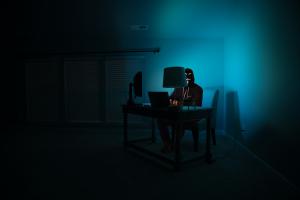
What Do Hackers Want?
The first vision that comes to my mind when I think of a hacker is the mysterious loner, wearing a hoodie twenty-four hours a day, drinking energy drinks by the gallon, and staring at fifty computers at once. I either seen too many movies or my vision is correct. Think of Chris Hemsworth in the movie, Blackhat; he sometimes fits this description.
In reality most hackers use sophisticated hardware and software to do the heavy lifting. Some hackers work for the government, some are loners but most are a group of people who communicate and help each other.
Many hackers will band together to attack the government or other organizations they feel are corrupt. Then there are those who attack institutions to gain information to steal identities. The final group attacks ordinary people trying to live their lives the best they can. What can these hackers want from us?
With the sophistication of the equipment and software, hackers can attack thousands of computers at one time. Many times it is an email being used to corrupt a personal computer. Other times an open port may let the hacker into the computer.
By using Sub7 or other sophisticated programs, a hacker could copy files, photos or any other document on your computer. There could be many reasons for someone to do this: Financial gain, stealing an identity, holding documents for ransom, using your computer to send out devious instructions, to make it harder to trace activity back to their computer, or spitefulness, deleting information from the computer or planting viruses to disrupt the computer. The list could be endless.
Nothing can stop a hacker completely but there are some easy things to do to detour or slow down a hacker.
-
Keep your malware up to date
-
Keep your computer clean
-
Close down tabs and windows
-
Log off sensitive sites, such as, banking
-
Do not open email you do not know
-
Close the picture option on your email
-
Never give out sensitive information on an email, such as a bank or social security number.
-
Do not store passwords on the computer unless they are encrypted.
-
Use a VPN when using a laptop at coffee shops, airports, and hotels.
-
Avoid unfamiliar websites
-
Do not respond to pop-ups on your screen. Get rid of them.
-
Trust your gut.
-
Secure your home network/WIFI
These are 13 easy steps to protect yourself from hackers. There are books at the library which go into greater detail to help protect you. If you think you have been scammed on the computer, call the authorities and the Attorney General.